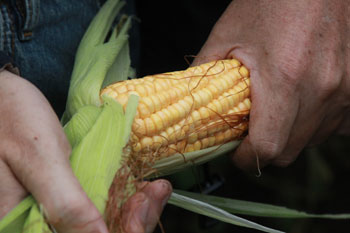A consortium of researchers will launch an e-consultation on the formulation of policy recommendations aimed at promoting bioeconomy development in Latin America and the Caribbean.

Montevideo, Uruguay, March 19, 2012 (IICA). On April 16th, and under the leadership of IICA, the Bioeconomy Research Consortium will launch an electronic consultation on:Bioeconomy, a New Paradigm for Sustainable Development?.
The consultation is organized in the framework of the project “Towards a Latin America and Caribbean Bio-Economy in partnership with Europe” (ALCUE-KBBE).
The project is supported by the European Union and it is implemented by a consortium led by CIRAD from France, where also take part the following institutions: CEO (Argentina), CIAT (Colombia), CINVESTAV (México), EMBRAPA (Brasil), Gent University (Belgium), Interamerican Institute for Cooperation on Agriculture (IICA), Institute for Experimental and Technological Biology (IBET, Portugal), Julich Institute (Germany), Pontificia Universidad Javeriana (Colombia), MINCYT (Argentina) and Wagenigen University (Netherlands).
The consultation is aimed at a selected group of researchers, professionals, policy makers and business people related to fields like biotechnology, biofuels, biodiversity, ecoservices, sustainable agriculture and other subjects which have to do with the concept of bioeconomy.
The main goals of the e-consultation are to discuss the scope and implications of the bioeconomy concept for latin american and caribbean countries and to contribute to formulate policy recommendations to foster bioeconomy development in this region. There will be some reference lectures by experts from Europe and other regions of the world where a strong development of the bioeconomy has been achieved.
The members of the Coordinator Board of the e-consultation are Eduardo Trigo (CEO/Argentine), Guy Henry (CIRAD/France), Antonio Donizetti (IICA/Uruguay) and Teresa Crespo (IBET/Portugal).
The e-consultation will be held since 16th to 27 April, with free access. To register and for additional information, please click on http://bioeconomy-alcue.org/.
For more information, contact:
e-consultation@bioeconomy-alcue.org











